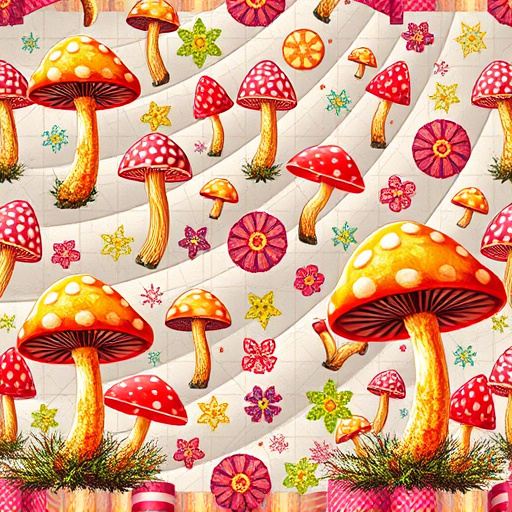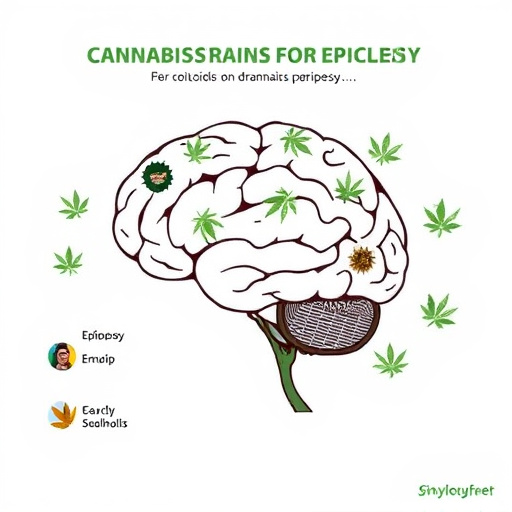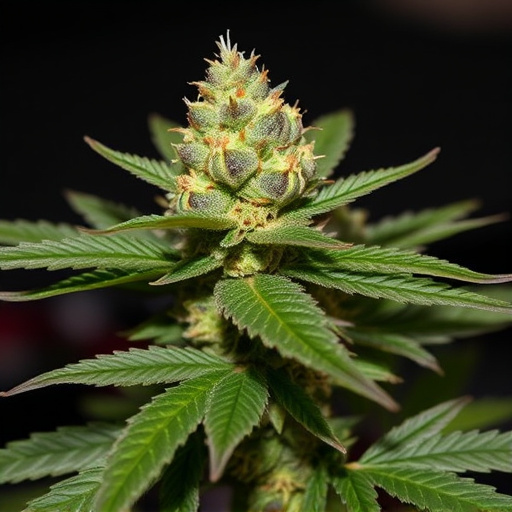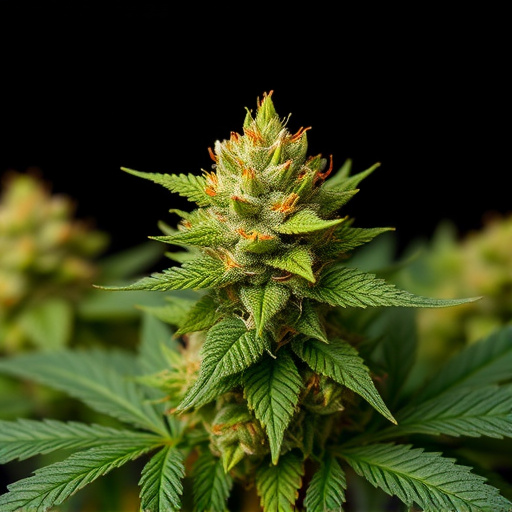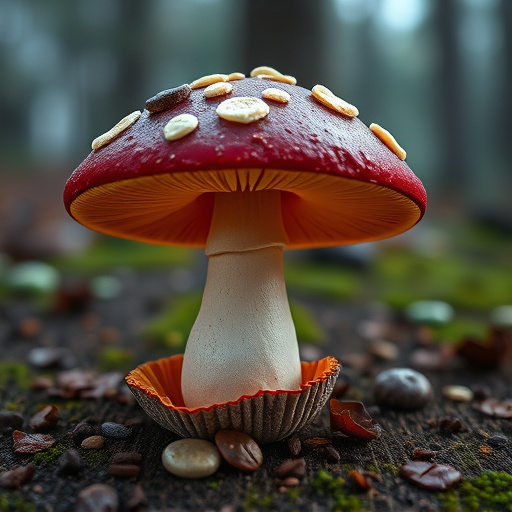The active compounds in magic mushrooms, psilocybin and psilocin, interact with serotonin receptors, offering potential therapeutic benefits for brain function. Research shows they can enhance creativity, spiritual experiences, and mental flexibility. While studies point to long-term cognitive improvements like better focus, more research is needed to fully understand their effects and optimal dosages. Balancing therapeutic potential against risks like anxiety or paranoia associated with overuse is crucial.
“Unleash your inner focus with a unique trend gaining traction in the wellness world: magic mushroom chocolates. This innovative approach combines the potential cognitive benefits of psilocybin and psilocin—the active compounds in magic mushrooms—with the allure of gourmet chocolate. But is this more than just a fad?
This article delves into the science behind these psychedelic compounds, their effects on brain chemistry, and how they can enhance focus. We explore practical ways to integrate magic mushroom chocolates into your daily routine while also examining long-term considerations, including potential risks and sustainability.”
- The Science Behind Magic Mushrooms and Their Effects on the Brain
- – Exploring the active compounds in magic mushrooms (psilocybin and psilocin)
- – Current research on their neurochemical interactions with the brain
The Science Behind Magic Mushrooms and Their Effects on the Brain
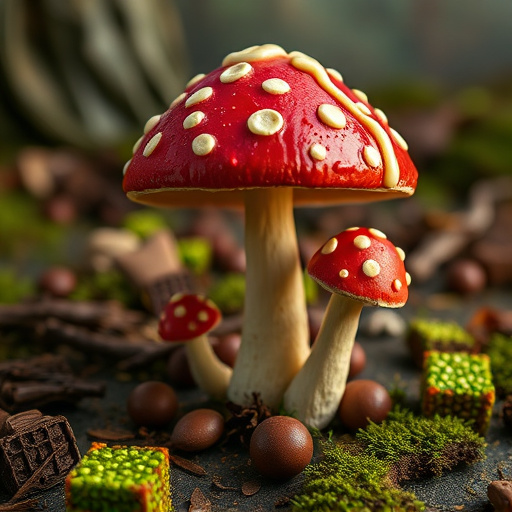
The active compounds in magic mushrooms, primarily psilocybin and psilocin, have been studied for their potential therapeutic effects on the brain. When consumed, these compounds are metabolized into substances that interact with serotonin receptors, particularly 5-HT2A receptors, which play a significant role in mood, cognition, and perception. Research suggests that psilocybin can induce a state of altered consciousness, leading to heightened creativity, spiritual experiences, and changes in perspective.
The long-term effects of magic mushroom chocolates on focus and cognitive function are a subject of ongoing research. Some studies indicate that moderate use may lead to improved mental flexibility, enhanced problem-solving skills, and better emotional resilience. However, the variability in individual responses is notable. Like any substance, overuse or misuse could potentially have adverse effects, including temporary anxiety or paranoia. Understanding the balance between therapeutic potential and risk is crucial when considering the long-term effects of magic mushroom chocolates for focus and mental health.
– Exploring the active compounds in magic mushrooms (psilocybin and psilocin)

The active compounds in magic mushrooms, psilocybin and psilocin, have gained significant interest for their potential therapeutic effects, including improvements in focus and mental clarity. These compounds are naturally occurring psychedelics that interact with serotonin receptors in the brain, leading to altered states of consciousness. Research suggests that psilocybin, when consumed in controlled settings, can facilitate profound experiences known as mystical or spiritual encounters. During these experiences, users often report enhanced creativity, heightened senses, and a deeper connection to their surroundings.
Beyond the immediate effects, studies exploring the long-term effects of magic mushroom chocolates indicate potential benefits for cognitive function, including improved focus and concentration. Some users claim that regular, moderate use can lead to increased productivity and mental acuity. However, it’s important to note that more research is needed to fully understand the scope of these effects, as individual experiences can vary greatly. The long-term benefits may also depend on factors like dosage, frequency of use, and personal mindset.
– Current research on their neurochemical interactions with the brain
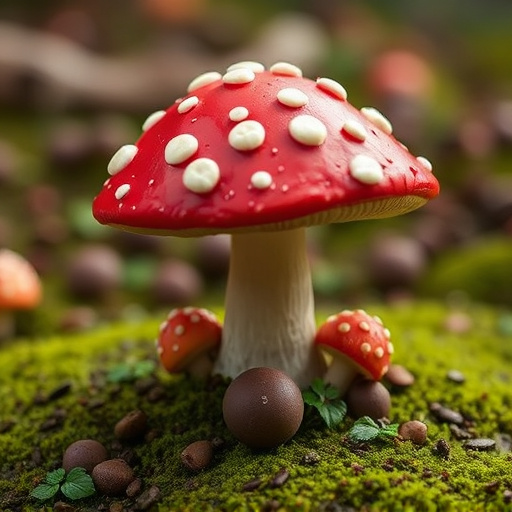
The ongoing exploration into the neurochemical interactions of magic mushroom chocolates reveals fascinating insights into their potential benefits, particularly for focus and cognitive enhancement. Research suggests that compounds found in mushrooms, such as psilocybin and psilocin, can modulate neurotransmitter systems in the brain, including serotonin receptors. These compounds have shown promise in promoting mental clarity, improving mood, and enhancing creativity, all of which contribute to better focus. Studies indicate that these long-term effects could be beneficial for individuals dealing with focus issues or cognitive impairments.
Current investigations highlight the complex ways magic mushroom chocolates interact with brain chemistry, affecting areas like the prefrontal cortex, associated with executive functions including attention, working memory, and decision-making. Early research points to the potential of these compounds in opening up new pathways within the brain, thereby improving focus and concentration over time. However, more studies are needed to fully understand the long-term effects and optimal dosages for various applications, especially as part of a holistic approach to cognitive health.
The potential of using magic mushroom chocolates for focus is an intriguing area of exploration. While current research highlights the temporary cognitive enhancing effects of psilocybin and psilocin, the long-term effects on brain function remain a topic of ongoing study. As we continue to unravel the science behind these compounds, it’s essential to approach their use with caution, especially in novel forms like chocolates. Further research could shed light on the possible benefits for focus and mental health, but until then, moderation and professional guidance are key.
